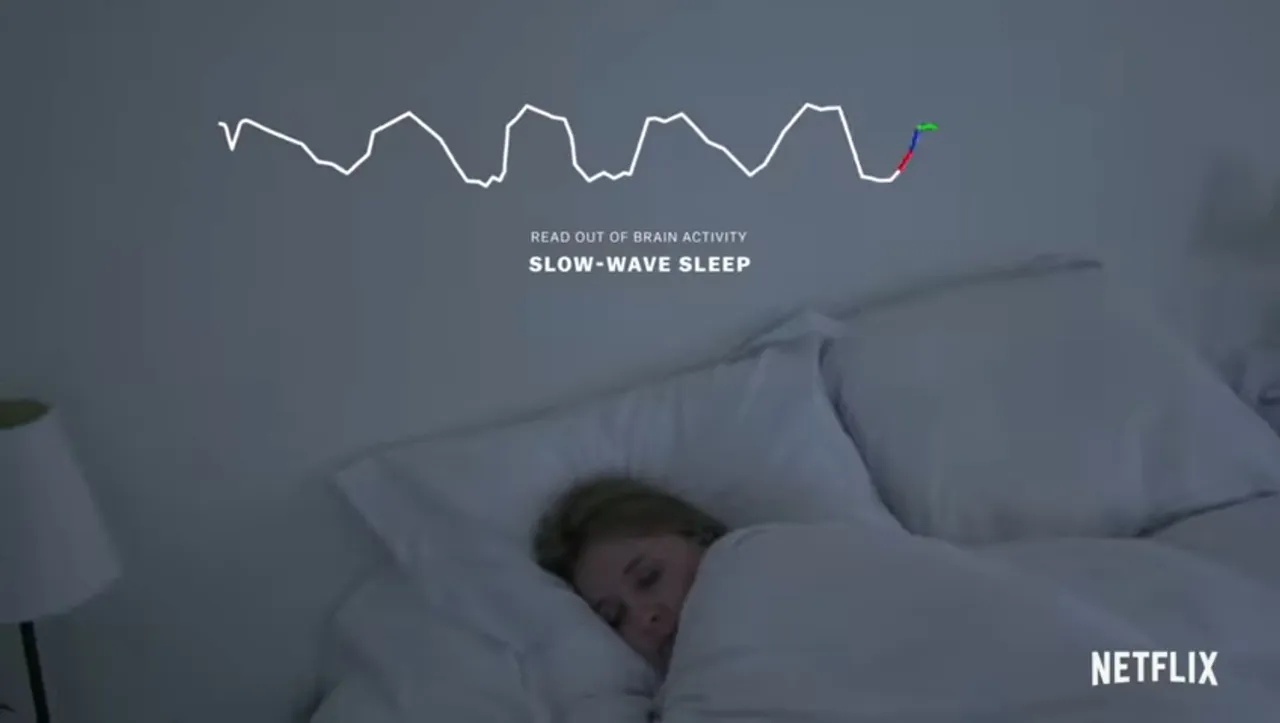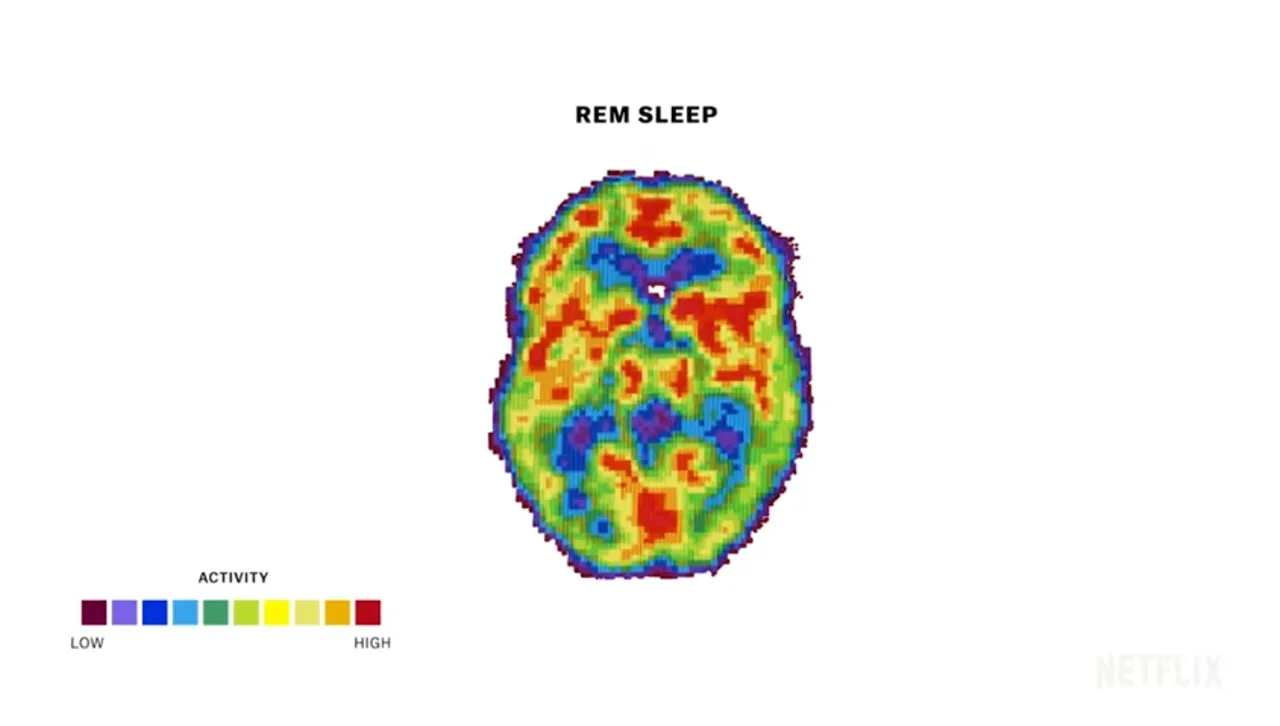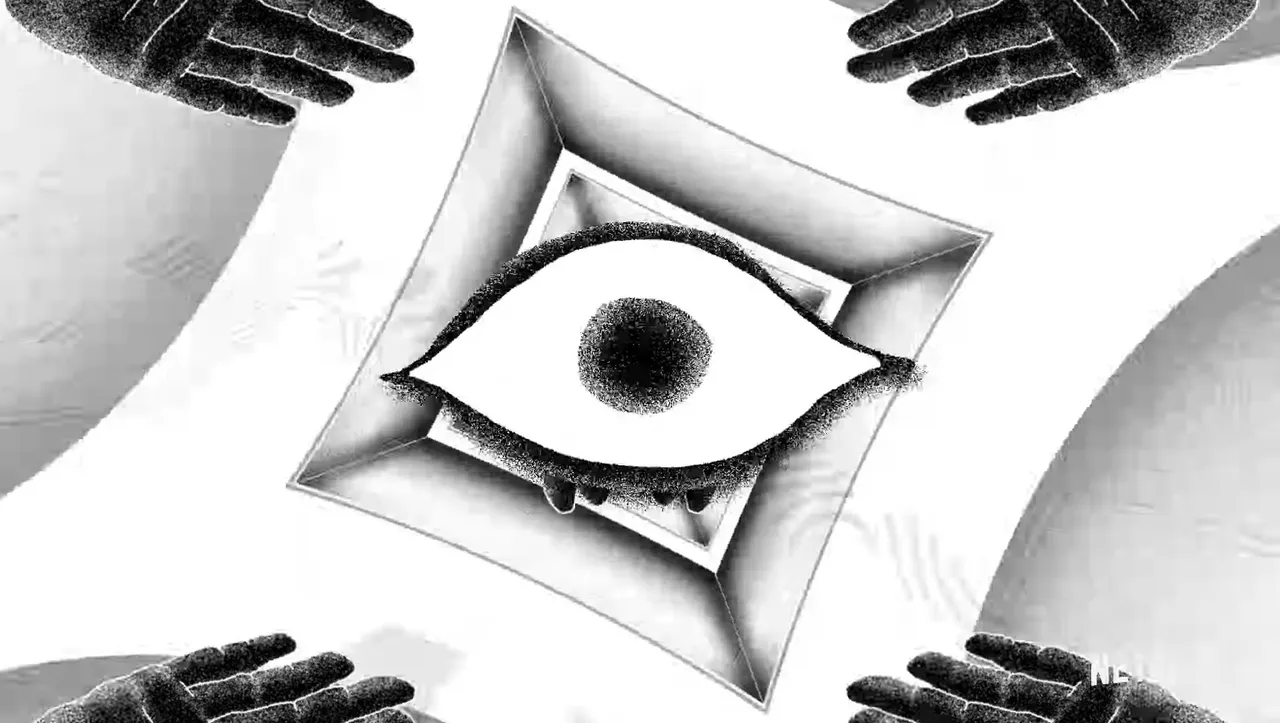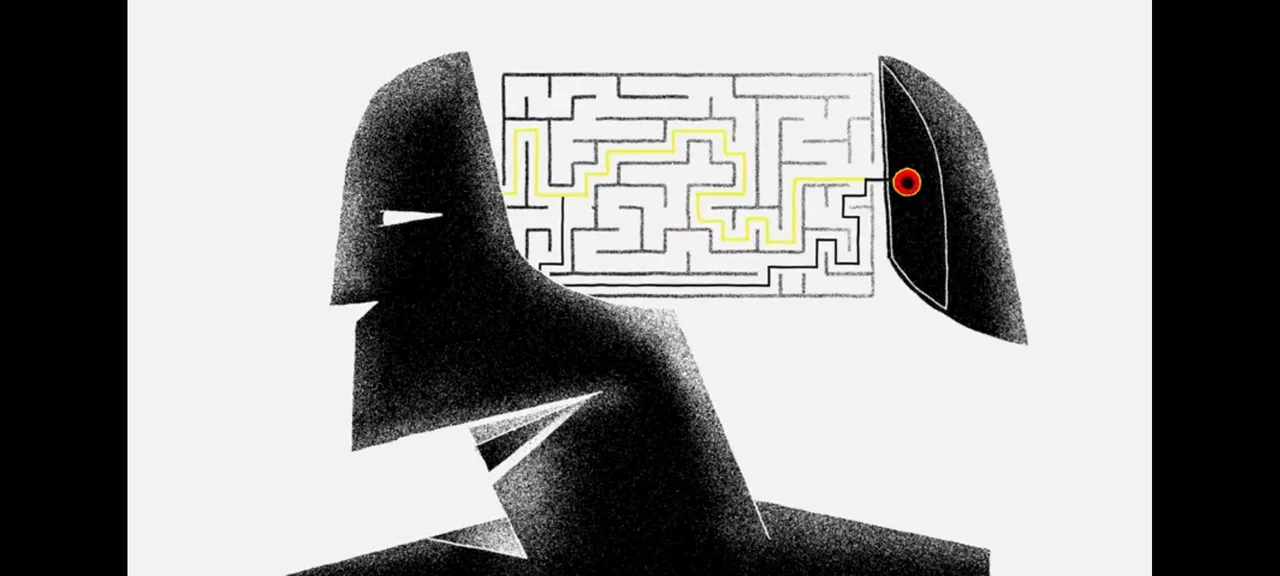

¡Saludos queridos espectadores del cine de hive! 🤗💖 el día de hoy les traigo la reseña de otro de los capítulos de la Serie Documental En Pocas Palabras (Originalmente titulada: “Explained”) de la plataforma Netflix, esta vez dedicada a hablar sobre El Sueño.
Como ya les he contado en anterioridad, estos post son principalmente informativos, analizando un poco lo que pude obtener a grandes rasgos de cada capítulo, y que mi idea principal es que quede disponible la información en mi blog destinado a la Salud Mental, Psicoeducación y Enfermedades Mentales, por lo que muy probablemente vayan a encontrar por aquí muchos Spoilers, la idea es que comprendan que esto que escribo aquí es algo mínimo en relación a toda la información que proporciona el capítulo. Una vez aclarado esto, entonces sí procedo con mi análisis y opinión…
Greetings dear viewers of hive cinema! 🤗💖 today I bring you the review of another of the chapters of the Documentary Series In Few Words (Originally titled: "Explained") of the Netflix platform, this time dedicated to talk about The Dream.
As I have told you previously, these posts are mainly informative, analyzing a little what I could get in broad strokes from each chapter, and that my main idea is that the information is available in my blog dedicated to Mental Health, Psychoeducation and Mental Illness, so you will probably find here many Spoilers, the idea is that you understand that what I write here is something minimal in relation to all the information provided by the chapter. Once this has been clarified, then I will proceed with my analysis and opinion....

Este capítulo, a diferencia de los demás, no me pareció tan informativo y esto es porque realmente no tenemos en la actualidad mucha información sobre los sueños. Durante muchos años, Psicólogos, Psiquiatras y cualquier cantidad de Neurocientíficos en el mundo han intentado encontrar un significado de nuestros sueños, pero la realidad es que no se ha llegado a una conclusión del todo.
Las opiniones hasta la actualidad son variadas, han cambiado algo a lo largo del tiempo, estamos hablando de que se conoce la labor de "Adivinador de sueños", incluso desde las dinastías egipcias, información que se conoce por jeroglíficos encontrados en las pirámides donde hablaban de esta "profesión" y que el significado principal de los sueños se basaba en la premonición.
O sea que realmente el intentar averiguar de qué tratan los sueños no es para nada nuevo, ha sido una incógnita que ha acompañado a la humanidad durante siglos y siglos y el significado que se les ha dado a ello ha ido variando un poco a lo largo del tiempo hasta la actualidad, donde se cree que podrían ser un compendio de todo eso que se creía con anterioridad y algunos conocimientos actuales, de los cuales hablan en el capítulo y de lo que someramente les hablaré a continuación…
This chapter, unlike the others, did not seem so informative to me and this is because we really do not have much information about dreams at present. For many years, Psychologists, Psychiatrists and any number of Neuroscientists in the world have tried to find a meaning of our dreams, but the reality is that no conclusion has been reached at all.
The opinions until today are varied, they have changed somewhat over time, we are talking about the work of "Diviner of dreams", even from the Egyptian dynasties, information that is known by hieroglyphics found in the pyramids where they spoke of this "profession" and that the main meaning of dreams was based on premonition.
So really trying to find out what dreams are not at all new, has been an unknown that has accompanied mankind for centuries and centuries and the meaning that has been given to it has been varying a little over time until today, where it is believed that could be a compendium of all that was previously believed and some current knowledge, which speak in the chapter and what I will speak briefly below ...


Científicamente tenemos una razón ya estudiada del por qué se producen los sueños y es que en la fase profunda del sueño ocurre lo que llamamos en medicina: "Sueño REM", en esta fase que se da mientras dormimos existe, a su vez (porque se subdivide en varias) una etapa de funcionamiento neuronal acelerado, donde básicamente existe una actividad cerebral parecida a cuando se está despierto.
Esto que les acabo de decir se traduce en imágenes como ondas en estudios cerebrales que demuestran una excitación neuronal y gráficamente se ve como una sumatoria de muchas imágenes al azar que pasan de forma muy acelerada sin tener que cumplir ningún patrón correlativo entre sí, es por ello los sueños pueden verse tan irreales o incoherentes, es porque la parte de nuestro cerebro encargado de la lógica a la hora de percibir las imágenes, básicamente en este momento está apagada como el resto del 90% de la actividad cerebral.
Scientifically we have a reason already studied why dreams occur and it is that in the deep phase of sleep occurs what we call in medicine: "REM sleep", in this phase that occurs while we sleep there is, in turn (because it is subdivided into several) a stage of accelerated neuronal functioning, where there is basically a brain activity similar to when you are awake.
What I have just told you is translated into images as waves in brain studies that show a neuronal excitation and graphically it is seen as a sum of many random images that pass in a very accelerated way without having to comply with any correlative pattern between them, that is why dreams can look so unreal or incoherent, it is because the part of our brain in charge of logic when perceiving images, basically at this time is off as the rest of the 90% of brain activity.


En el capítulo te explican muy gráficamente que lo que principalmente está activado mientras dormimos es la parte de nuestro cerebro asociada a las emociones, lo cual ha servido mucho para seguir manteniendo la teoría, que se estableció en un principio en la psicología, de que los sueños poseen una gran porción de nuestros miedos y del resto de nuestras emociones no expresadas, como la rabia o el dolor.
Básicamente anteriormente se tenía la idea establecida de que todo lo que soñábamos tenía un significado emocional, sin embargo, en la actualidad se sabe que gran parte de lo que soñamos puede venir simplemente del azar, por imágenes que vemos en nuestra vida diaria, vivencias, incluso, de cuan cercano sea el momento de dormir de alguna situación que hayamos vivido o alguna imagen que hayamos visto, por lo cual no podemos afirmar 100% que los sueños tienen un significado realmente tan importante para nuestra vida (al menos no todo el tiempo) ya que podría ser sencillamente alguna imagen guardada en nuestra memoria inmediata y traída por el inconsciente mientras dormimos.
In the chapter they explain very graphically that what is mainly activated while we sleep is the part of our brain associated with emotions, which has served to maintain the theory, which was first established in psychology, that dreams hold a large portion of our fears and the rest of our unexpressed emotions, such as anger or pain.
Basically, it was previously the established idea that everything we dreamed had an emotional meaning, however, it is now known that much of what we dream can come simply by chance, by images we see in our daily lives, experiences, even, We can not affirm 100% that dreams have a meaning really so important for our life (at least not all the time) since it could be simply some image stored in our immediate memory and brought by the unconscious while we sleep.


Supongo que has tenido alguna vez la sensación de que estás en un sueño porque lo que te rodea no tiene sentido, todo se percibe muy extraño o surreal y cuando te despiertas te das cuenta de que, en efecto, tu sensación era cierta y ¡sí estabas dormido! pues, esto es algo bastante común que ocurra alguna vez en las personas y lo conocemos como: "Sueños Lúcidos".
En el capítulo presentan a una persona que se ha entrenado para poder tener este tipo de sueños y para poder, incluso, actuar usando su raciocinio en sus propios sueños ¿Bastante loco, cierto? Pues, sí, básicamente en los sueños lúcidos hay activación de la región prefrontal de nuestro cerebro, es decir la encargada de la lógica y la persona puede modificar el sueño como quiera haciendo uso del libre albedrío o sencillamente estar en él sabiendo que está soñando, pero percibiendo las sensaciones de forma muy parecida a cuando se está despierto. Esta es una parte bien interesante del capítulo porque la chica muestra como incluso lleva un diario de sus sueños y de cómo ella conscientemente influyó en todo eso que vio y sintió mientras dormía.
I guess you have ever had the feeling that you are in a dream because everything around you does not make sense, everything seems very strange or surreal and when you wake up you realize that, in fact, your feeling was true and you were asleep! Well, this is something quite common that happens sometime in people and we know it as: "Lucid Dreams ".
In the chapter they present a person who has trained himself to be able to have this type of dreams and to be able to even act using his reasoning in his own dreams. Well, yes, basically in lucid dreams there is activation of the prefrontal region of our brain, i.e. the one in charge of logic and the person can modify the dream as he wants using free will or simply be in it knowing that he is dreaming, but perceiving the sensations in a very similar way to when he is awake. This is a very interesting part of the chapter because the girl shows how she even keeps a diary of her dreams and how she consciously influenced everything she saw and felt while sleeping.


El capítulo finaliza hablando sobre lo que se conoce hasta ahora de la importancia de los sueños, se recalca principalmente el aprendizaje a través del establecimiento de la memoria mientras dormimos, y la creatividad, ya que a través de los sueños somos capaces de poner a prueba alternativas que no podríamos estando despiertos.
Hablan sobre la resolución de problemas, ya que mientras estamos en nuestro día a día existe mucha información que pasa al inconsciente sin darnos cuenta y a la que no podemos acceder estando despiertos, pero mientras dormimos podemos obtener ciertos recuerdos que no sabíamos que en realidad teníamos y estos podrían ser de ayuda para poder solventar complicaciones en nuestro día a día.
Comparan las consecuencias emocionales de tener distintos tipos de sueño y como en realidad no se pueden desechar ninguna de las teorías que se han manejado desde la antigüedad, pero tampoco se pueden afirmar del todo, incluso hablan de la frecuencia de la presencia de ciertos sueños de acuerdo a varios estudios donde se demostró correlaciones en la población, en pocas palabras: algunos sueños, por muy extraños que sean, son frecuentes en la población, como soñar con dientes, por ejemplo, aun cuando no se entiendan del todo las razones.
En general se da a entender que todo esto es una parte del estudio del ser humano que es bastante desconocido donde todavía tenemos muchas preguntas sin respuestas, pero que en definitiva es algo que se seguirá explorando para poder obtenerlas en algún futuro, al menos mediato. Lo sentí como un capítulo diferente del resto, porque te motiva a investigar más y a sacar tú mismo conclusiones en base a todos los conocimientos que se tienen en la actualidad sobre los sueños, así que si te gusta el tema, podría interesarte el capítulo.
The chapter ends talking about what is known so far about the importance of dreams, mainly emphasizing learning through the establishment of memory while we sleep, and creativity, since through dreams we are able to test alternatives that we could not while awake.
They talk about problem solving, since while we are in our day to day life there is a lot of information that passes to the unconscious without us realizing it and that we cannot access while awake, but while we sleep we can obtain certain memories that we did not know we really had and these could be of help to solve complications in our day to day life.
They compare the emotional consequences of having different types of sleep and how in reality none of the theories that have been handled since ancient times can be discarded, but neither can they be completely affirmed, they even talk about the frequency of the presence of certain dreams according to several studies where correlations were demonstrated in the population, in short: some dreams, however strange they may be, are frequent in the population, like dreaming about teeth, for example, even if the reasons are not fully understood.
In general it is implied that all this is a part of the study of the human being that is quite unknown where we still have many unanswered questions, but that ultimately it is something that will continue to be explored in order to obtain them in the future, at least in the medium term. I felt it as a different chapter from the rest, because it motivates you to investigate more and to draw your own conclusions based on all the knowledge that is currently available about dreams, so if you like the subject, you might be interested in the chapter.

¿Me gustó? Honestamente me han gustado mucho más los otros capítulos, siento que no proporcionaron tanta información como debieron, aunque al ser una serie documental asumo que como los estudios científicos publicados son tan poco concluyentes, pues, no quisieron decir nada más, aun así, siento que pudieron hacerlo muchísimo más interesante porque este es un tema del que se puede sacar mucho material.
¿Lo vería otra vez? Lo dudo, lo vi dos veces para descartar que no era mi estado emocional por la migraña que no me había dejado apreciarlo bien, pero todo siguió igual, en general me pareció poco informativo y menos interesante que el resto.
¿Lo recomendaría? Todos los capítulos que he visto de la serie me han gustado, pero este capítulo siento que más bien le puede quitar el interés a las personas en intentar entender la complejidad e importancia de estudiar los sueños y, por supuesto, del dormir de forma adecuada.
Did I like it? I honestly liked the other chapters much more, I feel that they did not provide as much information as they should have, although being a documentary series I assume that since the published scientific studies are so inconclusive, well, they did not want to say anything more, even so, I feel that they could have made it much more interesting because this is a topic from which you can get a lot of material.
Would I watch it again? I doubt it, I watched it twice to rule out that it was not my emotional state due to the migraine that had not let me appreciate it well, but everything remained the same, in general I found it uninformative and less interesting than the rest.
Would I recommend it? All the chapters I have seen of the series I have liked, but I feel that this chapter may rather take away people's interest in trying to understand the complexity and importance of studying dreams and, of course, of sleeping properly.

Thank you for reading me!

All the images were taken as screenshots from the documentary on Netflix.
@liveofdalla using Canvas App and Picsart App.
